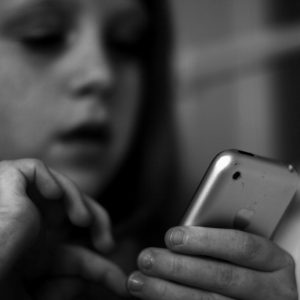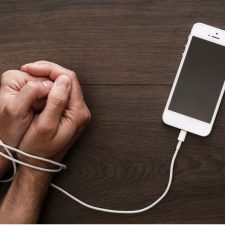Like Chocolate – The evidence seems to be irrefutable. The nation’s health is in a very sorry state. Along with smoking, obesity is one of the two main drivers behind the biggest killers of the modern world: cancers, heart attacks, strokes, and diabetes.
Last year, the World Obesity Forum predicted that unless effective action is taken, the cost of treating ill health caused by obesity in the UK would rise from $19bn to $31bn per year by 2025.
As one mechanism for combating this frightening scenario, the government’s controversial sugar tax on soft drinks came into force this month.
It seems that we are a nation addicted to sugar.
Being a parent myself, I am all too familiar with the effects confectionary or a can of fizzy drink can have on children but as I reflected on the recent legislation, it got me thinking about the wider challenges.
Whilst diet is key, other considerations such as exercise and sleep also play a significant part and I started to look at whether the modern world in general needed to take some responsibility. After all, we have become a nation obsessed with convenience and time-saving. It infiltrates every part of our lives, from how we work to what we eat and how we communicate with one another. Technology is making everything more instant and whilst it delivers many advantages, there are more concerning trends lurking in the tech shadows.
One thing I began to notice was the behaviour of some younger children when they were exposed to game consoles, smartphones and tablets for any sustained period of time. Many of them displayed traits that were reflective of the external effects often associated with a sugar overload. Hyperactivity, mood swings, periods of aggression and distraction.
 Perhaps we need to wake up to the fact that our addiction to technology has similar effects on our system to a sugar rush?
Perhaps we need to wake up to the fact that our addiction to technology has similar effects on our system to a sugar rush?
Numerous studies have shown that the overuse of mobile devices can be harmful to children’s health. The more time they spend on these devices, the less inclined they are to partake in any kind of physical activity. Playing games – especially online – is often combined with snacking on high-sugar, high-calorie, low-nutritional foods that begin to “feed” an alarming cycle. More time on the couch means less time burning calories. Over a sustained period, these habits can lead to significant weight gain.
Additionally, smartphones and tablets, in particular, disturb our sleep patterns, especially if they are used last thing at night. I have been surprised of late to see how many parents will place an iPad in front of their toddlers in restaurants to keep them quiet. We seem comfortable entrusting the “babysitting” of our children to these devices and should not be surprised that many of them display extreme mood swings.
Sceptics might claim that the same concerns were levied at children and television years ago but it’s not the same. Television is a one-way medium – you watch and consume. Tablets and Smartphones offer another level of interaction that goes far beyond the conventions of standard “broadcast” engagement.
I can remember my own experiences as a teenager playing video games and how easy it was to become lost in the “moment”. I consumed this cocktail of intense action, colourful graphics and thumping sound, all engineered to keep me locked into this “other world”. It was easy to waste away a morning before I reluctantly dragged myself free but not everyone has the same degree of discipline.
And what hope is there for millennials who have grown up integrating these technologies into their lives, so that they move into this next level of interaction – the social media space – already showing disturbing dependencies.
A 2017 study by The Royal Society of Public Health asked 1,500 young people aged 11-25 to track their moods when using the five most popular social media sites and the results were revealing. They suggested Snapchat and Instagram were the most likely to inspire feelings of inadequacy and anxiety. Seven out of 10 claimed Instagram made them feel worse about body image and two-thirds said Facebook made cyber-bullying worse.
Whether we like it or not, teenagers invest so much of themselves in social media and there are many records of secondary school pupils waking up in the middle of the night just to login to their accounts so they don’t miss out. When you couple this to the fact that on average, teenagers need more sleep than adults and this interruption impacts on that need, you end up with a segment of this demographic being tired, irritable, even depressed. This, in turn, can make them more susceptible to a range of illnesses.
As a comparison, we could look at cigarettes and how society’s approach towards them has changed over the last 100 years. What was once a fashionable and encouraged indulgence – almost an established part of society – soon became socially unacceptable as we realised the serious health implications. Today, it is a rightly condemned indulgence that even rising taxes have still not eradicated.
As a mobile phone user for the last 18 years, I wonder what pressing a variety of handsets to my head for sustained periods has already done to my brain and if any resulting complications will manifest themselves?
There will always be those who refute the argument and as an avid user of technology, I see its advantages but also believe we need to be mindful of how we expose our youth to it. Once we allow our children to look through that window we are tempting them to head for the door. Once they open that door and pass through it, there is no going back. Before we allow them to step fully into this world, we need to be sure they are equipped to deal with what they will find.
People can be taught how to eat sensibly because sugar is a single component that if reduced, can still be enjoyed. Technology is the same. Although its reach is much wider, bringing discipline to the young today will only help them tomorrow.
DC
Tags: Children, Connectivity, Health, Mobile

 Share On Facebook
Share On Facebook Tweet It
Tweet It


















